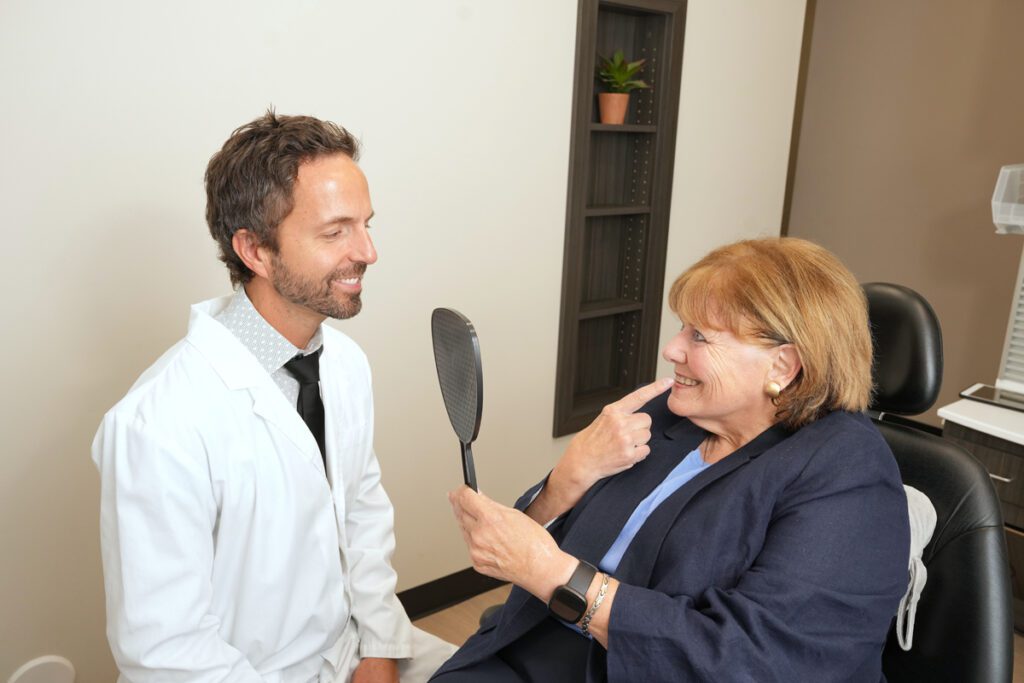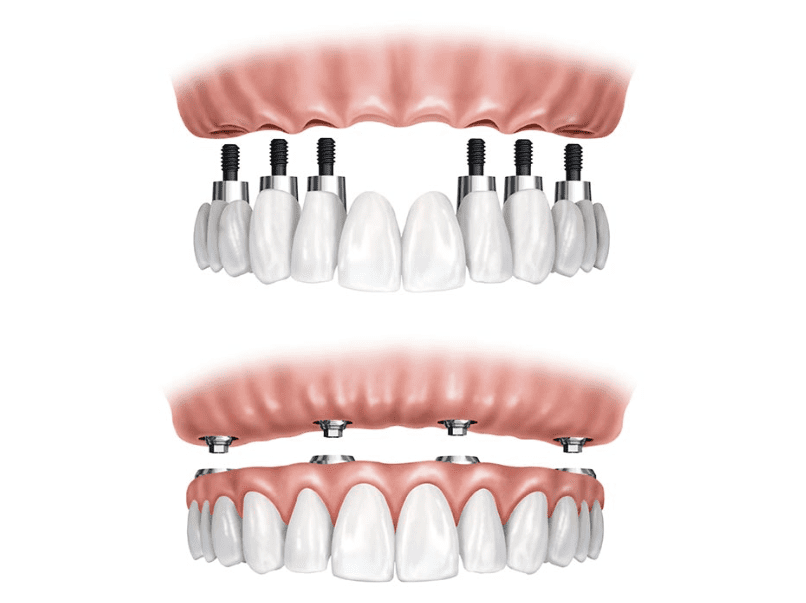Dental Implants Near Me Murray UT
Missing teeth can impact far more than your smile. They affect your confidence, your ability to enjoy favorite foods, and even your overall oral health. While dentures and bridges have traditionally been the go-to solutions, dental implants have emerged as the superior choice for tooth replacement. If you’re searching for dental implants in Murray, UT, this comprehensive guide will walk you through everything you need to know to make an informed decision and find the right dental care provider for your needs.
Dental implants represent a permanent, natural-looking solution that can restore both function and aesthetics to your smile. Unlike traditional tooth replacement options, implants integrate with your jawbone, providing stability that feels remarkably similar to your natural teeth. The process requires careful planning, skilled execution, and ongoing care, making it essential to choose the right dental professional for your treatment.
This guide will explore what dental implants are, why they’re considered the gold standard for tooth replacement, and how to navigate the process of finding quality dental implant services in Murray, UT. You’ll also discover what to expect during treatment, how to budget for this investment, and the long-term care your new teeth will require.
Understanding Dental Implants: The Basics
Dental implants are titanium posts surgically placed into your jawbone to replace missing tooth roots. Once the implant integrates with your bone through a process called osseointegration, a crown, bridge, or denture is attached to restore the visible portion of your tooth.
The implant system consists of three main components: the implant itself (the titanium post), the abutment (a connector piece), and the restoration (the visible tooth replacement). This three-part system creates a stable, durable foundation that can last decades with proper care.
Unlike dentures that rest on your gums or bridges that rely on adjacent teeth for support, implants function independently. They stimulate your jawbone just like natural tooth roots, preventing the bone loss that typically occurs after tooth extraction. This preservation of bone structure helps maintain your facial shape and prevents the sunken appearance that can develop with traditional tooth replacement methods.
Implants can replace a single tooth, multiple teeth, or even provide support for full-mouth restorations. The versatility of implant treatment makes them suitable for most adults who have lost teeth due to injury, decay, or gum disease.

Why Dental Implants Are the Gold Standard for Tooth Replacement
Dental implants offer advantages that no other tooth replacement option can match. Their success rate exceeds 95% in healthy patients, making them one of the most predictable procedures in dentistry.
Durability and Longevity
With proper care, dental implants can last a lifetime. The titanium post becomes permanently fused to your jawbone, creating a foundation that’s actually stronger than natural tooth roots. While the crown may need replacement after 15-20 years due to normal wear, the implant itself typically remains stable indefinitely.
Natural Function and Comfort
Implants restore nearly 100% of your natural biting and chewing ability. You can eat all your favorite foods without worry, speak clearly without slippage, and smile confidently knowing your teeth look completely natural. The secure fit eliminates the discomfort and embarrassment often associated with loose dentures.
Bone Preservation
When you lose a tooth, the surrounding jawbone begins to deteriorate without the stimulation provided by the tooth root. Dental implants prevent this bone loss by providing the necessary stimulation to keep your jawbone healthy and strong. This preservation maintains your facial structure and prevents premature aging.
No Impact on Adjacent Teeth
Traditional bridges require grinding down healthy adjacent teeth to serve as anchors. Implants stand alone, preserving the integrity of your remaining natural teeth and reducing the risk of future dental problems.
How to Find the Right Dental Implant Specialist in Murray, UT
Choosing the right dental professional for your implant treatment is crucial for achieving optimal results. Not all dentists perform implant surgery, and experience levels can vary significantly among those who do.
Credentials and Training
Look for a dentist or oral surgeon who has completed advanced training in implant dentistry. Board certification in oral and maxillofacial surgery or prosthodontics indicates extensive expertise in implant placement and restoration. Many general dentists also pursue additional implant training through continuing education programs and fellowships.
Technology and Techniques
Modern implant dentistry relies heavily on advanced technology for precise planning and placement. Look for practices that use 3D imaging (CBCT scans) for treatment planning, digital impressions for accurate restorations, and computer-guided surgery for optimal implant positioning.
Experience and Case Portfolio
Ask potential providers about their experience with implant cases similar to yours. A dentist who regularly places implants will have developed the skills and judgment necessary to handle complex cases and potential complications. Request to see before-and-after photos of their work.
Patient Reviews and Referrals
Online reviews and referrals from other patients provide valuable insights into a practice’s quality of care, communication style, and patient satisfaction. Pay attention to comments about pain management, treatment outcomes, and overall experience.
Pinecrest Dental: Your Local Murray Implant Solution
Pinecrest Dental in Murray, UT, offers comprehensive dental implant services with a focus on personalized care and advanced treatment techniques. Their experienced team combines technical expertise with a commitment to patient comfort, making them a trusted choice for dental implant treatment in the Murray area.

Step-by-Step: Your Dental Implant Journey
Understanding the implant process helps you prepare mentally and physically for dental implant treatment while setting realistic expectations for timeline and recovery.
Initial Consultation and Evaluation
Your journey begins with a comprehensive examination that includes X-rays, 3D imaging, and a thorough review of your medical and dental history. Your dentist will assess your bone density, gum health, and overall oral condition to determine if you’re a good candidate for implants.
Treatment Planning
If implants are suitable for your situation, your dentist will create a detailed treatment plan. This includes determining the optimal implant size and placement, deciding on restoration type, and establishing a timeline for treatment phases.
Preparatory Procedures
Some patients require additional procedures before implant placement. These might include tooth extractions, bone grafting to augment insufficient bone volume, or gum disease treatment. These preparatory steps ensure the best possible foundation for your implants.
Implant Placement Surgery
The surgical placement of your implant is typically performed under local anesthesia, with sedation options available for anxious patients. The procedure involves creating a small opening in the gum tissue, preparing the bone site, and placing the titanium implant. Most patients experience minimal discomfort and can return to normal activities within a few days.
Healing and Osseointegration
The healing period typically lasts 3-6 months, during which the implant fuses with your jawbone. Temporary teeth can often be provided during this time to maintain your appearance and function.
Restoration Placement
Once healing is complete, your dentist will attach the abutment and take impressions for your custom crown, bridge, or denture. The final restoration is carefully crafted to match your natural teeth in color, shape, and size.
Investment and Payment Options for Dental Implants
Dental implants require a significant financial investment, but their longevity and benefits often make them more cost-effective than alternatives over time.
Understanding the Costs
The total cost of dental implant treatment varies based on several factors, including the number of implants needed, the complexity of your case, and any additional procedures required.
Insurance Coverage
While dental insurance traditionally hasn’t covered implants, this is changing as more plans recognize their medical necessity. Many insurance policies now provide partial coverage for the crown portion of treatment, and some cover implants when they’re deemed medically necessary.
Financing Options
Most implant providers offer financing options to make treatment more accessible. These may include in-house payment plans, third-party financing through companies like CareCredit, or partnerships with lending institutions that specialize in healthcare financing.
Value Consideration
When evaluating costs, consider the long-term value of implants compared to other options. While dentures may seem less expensive initially, they require regular adjustments, relines, and eventual replacement. Implants, maintained properly, can last a lifetime, making them often more economical over the long term.
The Advantages of Choosing Local Murray Dental Care
Selecting a local dental implant provider for your implant treatment offers numerous benefits beyond convenience.
Ongoing Relationship
Dental implants require long-term maintenance and occasional adjustments. Having a local provider means you can easily schedule follow-up appointments and address any concerns that arise. Building a relationship with your dental team also ensures continuity of care and personalized attention.
Emergency Access
Should you experience any post-surgical complications or concerns, local providers can accommodate urgent appointments more easily than distant specialists. This accessibility provides peace of mind during your recovery period.
Community Connection
Local dental practices often have established relationships with other healthcare providers in the area, making referrals for specialized care seamless when needed. They also understand the specific needs and preferences of the Murray community.
Supporting Local Economy
Choosing local dental care supports Murray’s economy and helps maintain quality healthcare options within your community.

Caring for Your Dental Implants: Tips for Lifelong Success
Proper care is essential for the long-term success of your dental implants. While implants don’t decay like natural teeth, they can still be affected by gum disease if not properly maintained.
Daily Oral Hygiene
Brush your implants just like natural teeth using a soft-bristled toothbrush and non-abrasive toothpaste. Floss daily around your implants using specialized implant floss or interdental brushes. Water flossers can also be effective for cleaning around implant sites.
Regular Professional Care
Schedule regular checkups and cleanings with your dental team. Professional cleanings remove plaque and bacteria that can lead to peri-implantitis, a condition similar to gum disease that can threaten implant stability.
Lifestyle Considerations
Avoid harmful habits like smoking, which significantly increases the risk of implant failure. Limit excessive force on your implants by not chewing ice, opening packages with your teeth, or grinding your teeth at night. If you grind your teeth, your dentist may recommend a nightguard to protect your investment.
Monitor for Changes
Be aware of any changes around your implant sites, such as bleeding, swelling, or discomfort. Early detection of problems allows for prompt treatment and better outcomes.
Ready to Transform Your Smile?
Dental implants represent more than just tooth replacement—they’re an investment in your quality of life, confidence, and long-term oral health. The advanced techniques and materials available make implant treatment more successful and comfortable than ever before.
If you’re considering dental implants in Murray, UT, take the first step by scheduling a consultation with a qualified implant provider like Pinecrest Dental. During this appointment, you’ll receive a thorough evaluation, discuss your treatment options, and develop a personalized plan that addresses your specific needs and goals.
